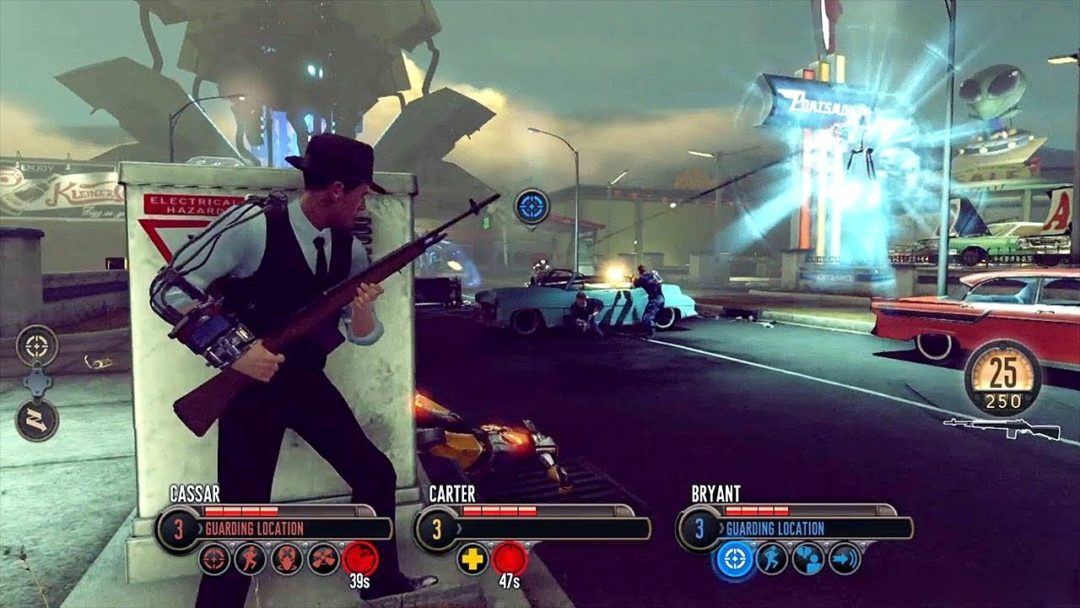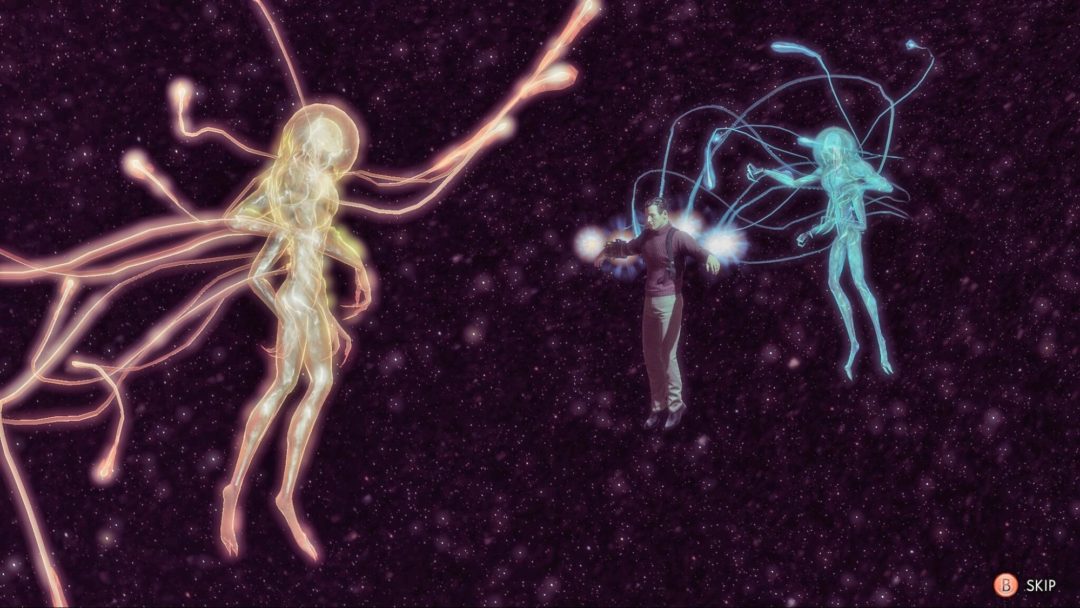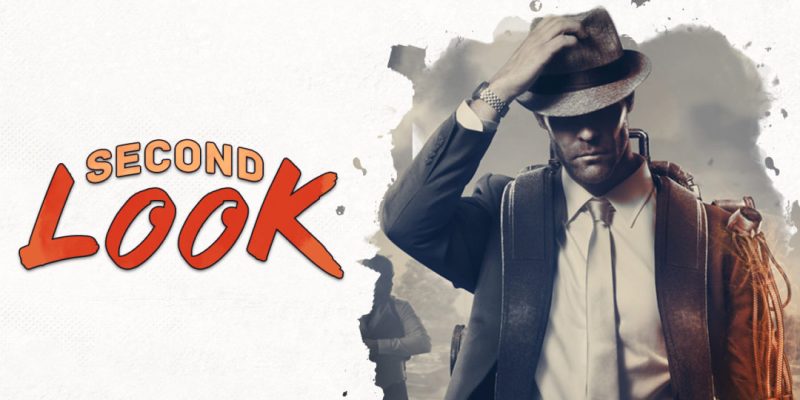The Bureau: XCOM Declassified was one of the last significant releases of the seventh console generation and one of its most troubled games. It began development in 2006 but wasn’t released until 2013. It was initially unveiled as a first-person horror shooter, then turned into a third-person tactical RPG shooter. The incredibly ambitious game was hamstrung by enough drama to fill its own story.
Despite everything, 2K Marin and 2K Australia managed to produce a cult hit. While Firaxis Games’ XCOM titles sate those who wanted a blast of nostalgia, 2K Marin aimed for something bolder and created one of the most remarkable stories in gaming. The Bureau should have been doomed, yet it’s actually a resounding success. Its one major downside is that getting to the best parts requires some patience thanks to the slow-burn conspiracy plot.
There’s no way of avoiding spoilers when discussing how everything in The Bureau ties together, so if you’re curious and want to see it for yourself, then grab the game and play it. It’s 13 hours at most, and is packed with some of the best encounter design and writing you’ll see in a third-person RPG. It makes several scenarios in the likes of Mass Effect look laughable by comparison. I can’t recommend it enough, but if you need to hear what’s so darn great about it before diving in then brace yourself.
Spoiler Warning | If you have not played The Bureau: XCOM Declassified and intend to, stop reading now.
The Bureau: XCOM Declassified is about control and choice. The game is set in the 1950s and starts CIA agent William Carter, who tragically lost his family to a house fire while away on a mission to Russia. He’s since become broken and increasingly ill-tempered, but he’s the best pointman America has left when it’s revealed that aliens have invaded and infiltrated every level of the government. Assigned to deliver a package of vital importance to a joint meeting of the Army, NSA, and CIA, Carter is mortally wounded by a spy. But then the case he’s meant to deliver explodes and magically heals him. An odd glow covers the screen, and players take control.
The “Outsiders” were first believed to be communists, but it soon becomes clear that America is the staging ground of a global invasion and the clock is ticking. The meeting is a slaughter, leaving only a ragtag group to save the world from total domination. You’re XCOM, the last line of defense, and no one’s coming to your aid.
Carter’s decisions impact the fate of the world as leads his squad into the thick of enemy gunfire. Your enemies are unknown and equipped with weapons that make the rifle in your hands feel like a pea shooter. Every time it seems like you’ve seen everything, brutes, gunships, sectopods, and more all deploy onto the field to crush you. It’s precisely how an XCOM game should feel, with players just barely getting by.
That squad is your greatest asset. Carter’s ammunition is sparse, and almost all his abilities relate to support rather than damage. He can lift enemies, heal his squad, and summon temporary allies. Even his most devastating ability, mind control, merely turns an enemy to your side. Meanwhile, your squad can include cloaking snipers, aggroing soldiers, engineers with rocket turrets, and support characters who buff squadmates and debuff enemies. You can only bring two agents with you at a time and there are up to four ways to build out each agent, meaning you’ve got a choice of 16 possible combinations.

Once you’ve assembled your squad, you lead them on foot and through a tactical command wheel. The gameplay appears simple, but the options available are spectacular. Combat happens in real time but you can queue up multiple actions in a single order. You might have your sniper throw a decoy, flank along nearby cover, and then call in a bombardment. At the same time, you’ve got an engineer deploying a sentry turret you can lift to pound the enemy. Meanwhile, the engineer tosses a flare that sends the Outsiders running headfirst into your sniper’s bombardment and a perfect line of sight on the stragglers. Within an instant, you can wipe out waves of enemies with clever tactics. There’s an achievement for clearing an entire mission with just your squad.
The Bureau is a hybrid of Mass Effect and Brothers in Arms, with abilities out of BioShock. As with all three of those games, synergy is vital, ensuring you discover the best combinations possible. What’s more, you have to level agents up to unlock all their abilities, meaning there’s a substantial loss if they die. Altering difficulty settings makes it easier to keep your squad alive rather than directly changing their stats, ensuring strategy is always king.
A crucial part of The Bureau’s genius is it doesn’t overwhelm you. Your first operation is a rescue mission, but otherwise you focus on just trying to find any advantage against the Outsider threat. The slower pace lets you ground yourself and get to know the wonderfully eccentric Dr. Allen Weir and the other survivors running XCOM.
Everyone has a stake in this operation, which helps drive the plot. Agent Angela Weaver wants to save her brother. Your pilot Leon Barnes just wants to keep his soul intact while following the orders of XCOM Director Myron Faulke. Faulke is every paranoid conspiracy theorist blended with J. Edgar Hoover into a character that’s equally charismatic and unsettling.

Additional side characters strewn across all have their own stories to tell. They might just be a guard or radio operator, but 2K Marin went to the lengths of portraying them as people with real goals and drives. You even capture and free an Outsiders who is no longer commanded by the hivemind known as Mosaic. Players are free to bludgeon or negotiate with the Outsider and the alien will react with either despair at human barbarousness or suspicious relief and hope for his people.
This cast of irregulars fills out the story with new developments in every mission. Like Mass Effect 2, The Bureau is formatted like a television show. Every field operation has a unique plot, weapon, or similar wrinkle to keep things fresh. Maybe you’re chasing a psionic Outsider who controls minds. Or it’s a race against time to stop a nuclear launch, requiring aggressive strategies lest Washington be blown away.
Other missions are subtler, like searching for survivors amid a forest fire in California’s redwood forests or checking in on an XCOM listening post that’s under siege. All the while, Carter and his compatriots trade thoughts and worries that slyly hint at upcoming twists. Whether or not you’re on the main path, something substantial always plays out. Nothing feels like a copy and pasted side mission.
Along the way, one of your primary objectives is finding the suspected Outsider leader, Axis. Weaver’s hot on his trail, certain this could end the war. Defeating Axis only reveals that someone greater in charge: an Outsider known only as Origin who wields Mosaic directly. You go so far as to travel through a wormhole in the Hoover Dam just to have a shot at him on the Outsider home planet. After one of the most intense gauntlets in the game, you find that Origin isn’t armed. In fact, he’s been expecting you.

That case that Carter was delivering at the start of the game? It didn’t explode. It opened to reveal an entity older than Carter’s world: You, the player. Wasn’t it convenient how Carter suddenly developed tactical abilities and kept calm despite clearly being on the verge of having a total breakdown? Or how he sometimes goes off mission like letting Weaver get her revenge on Axis for killing her brother, rather than taking the bastard back to milk for intel. He assures her that XCOM has all they need, with a certainty that directly contrasts with the nihilism he displayed at the beginning of the game. It’s as if someone else is sitting at the wheel, isn’t it? Origin drags you out of the pilot seat, revealing your in-game avatar to Carter.
You’re an Ethereal, what Origin calls a demon. You’re a being of vast power made of pure energy that can symbiotically inhabit a host. Origin’s already enslaved his own Ethereal, using her to power Mosaic. Origin was a scientist whose world was dying from the very same destructive choices humanity is making. He galvanized his people into weaponized survivors. Origin believes anything is better than death and he wants to grow stronger by absorbing your power.
Origin bids you to abandon Carter, but you refuse. While he’s pushed your connection to the brink (Carter’s dialogue sounds miles away as he reports what’s happening), you’re able to restore your bond and free the other Ethereal. You escape with your kin back to Earth, destroying Origin’s primary base of operations. It’s over now, right? Not quite, though The Bureau lets you think it is.
It takes a few more missions for Carter to begin to process that he’s your puppet. When the other Ethereal, who’s being kept alive in the XCOM base’s generator, awakens it calls to you and you turn visible, revealing that you’ve been holding Carter’s body in a T-pose. You can now communicate with the only other member of your kind that you’ve ever met. She discourages you from helping humanity because of her experience with Origin. You can either agree or disagree, but regardless of your decision Carter finally reasserts his agency by murdering the other Ethereal.

In this handful of missions The Bureau smashes the 4th wall to pieces and presents a true challenge — a protagonist fighting for agency by opposing their player. From this point on, every cutscene shows Carter trying to free himself from you. It even happens in the interludes during loading, where Carter is shown mourning in an isolated chair where his consciousness has been tucked aside.
Carter hasn’t grown as a person. You’ve been the one leading the charge and saving lives. Carter’s more broken than ever. He’s raw id locked in a cage, and now he’s fighting back. All his anger overrides any consideration for what you’ve both achieved. The very idea of being taken advantage of, just as he was when the CIA only informed him of his family’s death after his mission to Russia was complete, pushes him over the edge. He speaks directly to the player in what may be one of the most chilling moments in the game: “It’s just me and you, now. Only one of us is getting out of here alive.” The framerate stutters as he turns to look at the screen, directly at you, before the game cuts to black, jumping forward several days.
Suddenly, it’s like we’re back to business as usual. Your friendly Outsider and Weir are attempting to interface with Mosaic once more. Crippled as Mosaic may be, the Outsider mothership is still evading XCOM. It’s a dangerous risk, one that forces the Outsider back under Origin’s mind control long enough for Origin to discover your base. Each side races to see who can stomp out the other first. XCOM is overrun in an attack led by your former ally. Then Carter starts fighting back again. Every time he frees himself, the game goes to a cutscene, only to snap back to gameplay. Your squadmates notice you’re behaving erratically before Carter slips away.
This culminates in Carter finding the Outsiders’ bomb. Carter’s attempts to free himself grow violent, fighting you off several times. Finally, you inhabit yourself in the universe, floating as an Ethereal and watching Carter reach the base’s main reactor. He threatens to detonate the bomb, taking all of humanity to hell if you don’t release him, and he’s serious. If you refuse, he’ll detonate the bomb. You hear everyone die, and the game cuts to the credits. You can’t make Carter your plaything anymore. Yet, there are those willing to work with you since they know you have their best interests at heart.

Weaver, Faulke, and Weir are all open to being a new host. You choose one, and then guide them to Carter so they can knock him out and disable the bomb. From this point on, everyone addresses you and your new host as two individuals. Whoever you choose not only alters how they handle the mission but decides whose lives are on the line during the final mission. Together, you lead the charge in a desperate bid to destroy Origin for good.
In what may be the boldest design decision in 2K Marin’s history, the developers double down on the branching endings from BioShock 2, permitting Carter, Faulke, Weir, and Weaver’s deaths depending on your choices. The fate of your friends and the entire world is decided by who you trust. It’s a suicide mission where no one gets a happy ending, but if you’re lucky, humanity might just have hope for the future.
All of this is wrapped up in some of the game’s best tactical scenarios. The final gauntlet against Origin’s minions is a true test of your ability to adapt, survive, and overcome. Every squad combination is viable. The environment and enemy composition is superb. There is no guaranteed way to victory, but dozens of possibilities. It’s a true XCOM experience, reaching a crescendo few games can match.
The Bureau: XCOM Declassified isn’t perfect. Some of the guns don’t have punch. A few early missions drag on. It’s clearly a low-budget experience with stiff facial animations and a short runtime. An ending tune implies that you, the Ethereal, are the same Ethereal that leads the invaders in XCOM: Enemy Unknown, which taints an otherwise marvelous, quiet ending. The Bureau doesn’t need a sequel. Its story is complete, which is something rare in modern games.
Yes, it’s just a third-person cover-shooter and its story doesn’t have thousands of branching paths that alter whole galaxies. It’s focused on the story it wants to tell. The Bureau’s narrative and gameplay design are so deeply tied that, if you can look past series expectations, you’ll find one of the smartest games to date.
